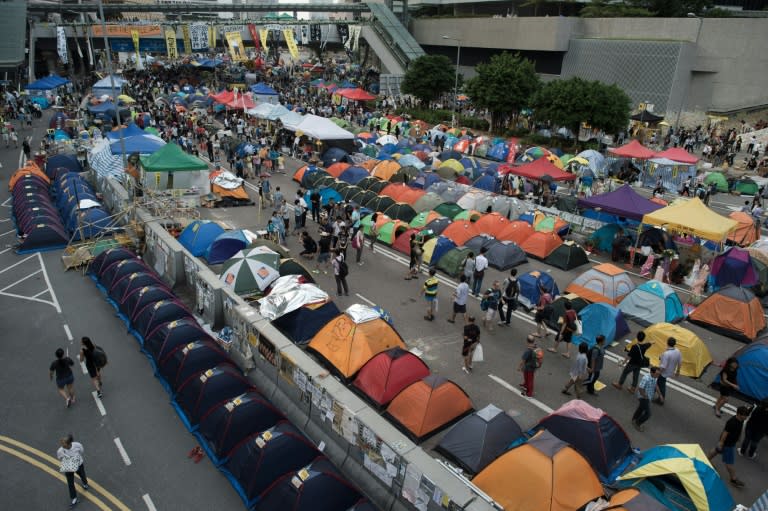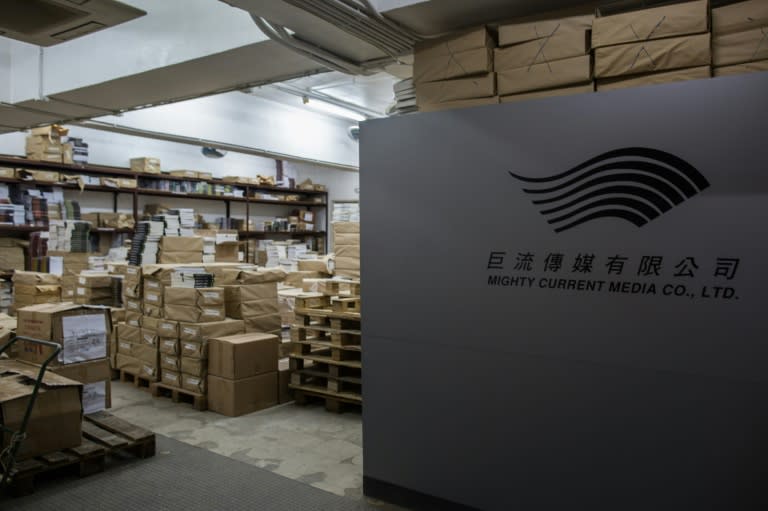Hong Kong independence 'inevitable' says campaign leader
For the majority of Hong Kongers, the notion of breaking away from mainland China is far-fetched -- but pro-independence leader Andy Chan insists it can become a reality as fears grow Beijing is tightening its grip. Critics cast young activists such as Chan, who set up the Hong Kong National Party (HKNP) in March, as naive political novices without a workable strategy, campaigning for the unattainable. But while many in the city may believe the independence mission is futile, the discussion of what was largely a taboo subject in Hong Kong has now undeniably become part of its political narrative as frustrations increase, particularly among younger generations. "The Chinese Communist Party will never give us democracy, so I decided to cut off from them... that's the reason that I pursue independence," Chan, 25, told AFP. "Why can they decide our fate and destiny, even though we are two different groups (of people)?" Chan says his party has 30 core members, all of whom are under 30-years-old. HKNP's brazen pro-independence stance has drawn ire from Beijing and authorities in Hong Kong, who have warned campaigning for a breakaway will damage the city's future prosperity and say that advocating independence could result in unspecified "action according to the law". Chan remains undeterred. "Hong Kong will be an independent country, I don't know when, but it will happen," he says. Hong Kong is self-governing and retains liberties not seen on the mainland under a "one country, two systems" deal, made before the city was handed back to China by colonial power Britain in 1997. Under the arrangement, Hong Kong's semi-autonomous status is guaranteed for 50 years -- but Beijing sees the concept of eventual independence as unthinkable. - 'Deny your nationality' - Tall, bespectacled and softly spoken, Chan studied engineering and business -- he gave up his job as a sales engineer to found the party. HKNP taps in to growing antipathy towards authorities in Beijing and Hong Kong since the failure of massive pro-democracy protests in 2014 to win political reform. The negative sentiment has been exacerbated by growing influence from Beijing in a range of areas, from politics to the media -- including the disappearances of five Hong Kong booksellers who resurfaced on the mainland. The men all worked for a publishing house that produced salacious titles about political intrigue and love affairs at the highest levels of Chinese politics. Young activists are now increasingly pushing for more autonomy from China as part of a new "localist" movement, which sees Hong Kong as a separate society and culture. Although not all localists are campaigning for independence, some see it as the only solution -- and have said they are not afraid to use violence to achieve their goal. Chan is unequivocal that Hong Kongers must fundamentally rethink their sense of identity to survive. "We speak Cantonese, they speak Mandarin, we use common law and they don't, we have our culture, our religions, our lifestyles which are greatly different from the Chinese region," Chan said. "Hong Kong people have to deny their Chinese nationality." The idea of independence is gaining support, Chan says: one pro-independence localist leader took more than 60,000 votes in a recent parliamentary by-election. While he would not divulge his own party's plans or political strategy, Chan describes its members as "revolutionary". "(Going to) jail, we are ready for that because we are fighting for our freedom and our future," he told AFP. HKNP has already faced hurdles after authorities refused its application to register as a company, making it difficult to run in legislative elections in September. But Chan says he is still considering competing for a parliamentary seat, buoyed by his belief that momentum for the independence movement is growing. "Hong Kong is ready to be a country," he says. "More and more people realise that 'one country two systems'...is not viable."





